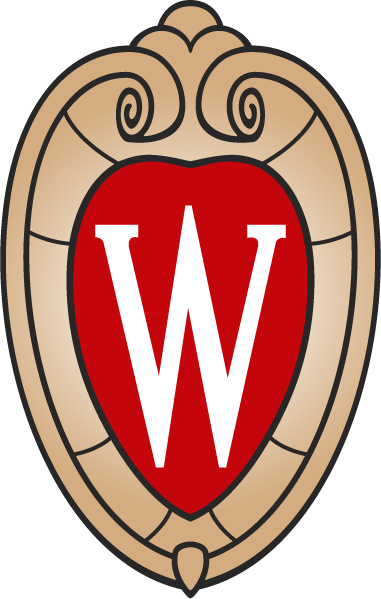
Sanitary Sewer Engineering and Collection System Management
interpro.wisc.edu/RA01050 See upcoming datesCourse Overview
A reliable sanitary sewer system is one of the most important public assets for any city. This course will provide you with valuable knowledge that you can apply immediately in your own system and your next project. The course combines engineering principles, technologies, cost estimating, practical guidance, and case studies.
Who Should Attend?
- Wastewater engineers, operators, and managers
- Consulting engineers
- Federal agencies and military bases
- Regulatory staff
Course Outline
Overview of Sanitary Sewer Systems in the United States
- Sewer metrics and characteristics
- Planning, designing, upgrading, operating
- National trends
Codes and Regulations
- Combined and sanitary sewer overflows (CSO and SSO)
- CMOM programs – capacity, maintenance, operations, management
- Blending policies, capacity assurance programs
Design Flows and System Models
- Selecting flows for upgrades and new projects
- Peaking factors, probability and recurrence intervals
- Hydraulic models and when to use them
Hydraulics of Sanitary Sewers
- Open channel and pressurized pipe flow
- Forcemains and air release valves
- Potential problems that can occur
Pumping Stations and Lift Stations
- Station types, pros and cons
- Operating strategies and reliability
- Variable speed, constant speed, and storage
Pipe Materials and Appurtenances
- Gravity and forcemain piping
- PVC, FRP, ductile iron, HDPE
- Manholes, service laterals, connections
Reducing Infiltration/Inflow and Sanitary Sewer Overflows (SSOs)
- Determining the quantity of I/I in your system
- Smoke testing, dye testing, televising, and inspection programs
- NASSCO manhole and pipeline assessments
Sewer Construction Costs
- Unit prices, materials, and crew costs
- Materials, depths, sizes, site conditions, crossings
- Bidding exercise
Pipe Rehabilitation and Repair Technologies
- Cured-in-place pipe (CIPP)
- Pilot tube micro-tunneling
- Trenchless and semi-trenchless technologies
- Manholes and lateral rehabilitation
Problem-Solving Workshops and Exercises
- Attendees will participate in a series of problem-solving exercises that will help them to understand the principles learned in the course.
Testimonials
"This was an extremely worthwhile and informative course."
"An excellent course. I will recommend it to my fellow staff members."
"Fantastic course. Well worth the cost."
"Great overview of sanitary sewer systems from conception, design, construction, and maintenance."
"Great instruction. Speakers provided a great pool of knowledge."
Instructors
Joan Hawley
Joan Hawley, PE, President of Superior Engineering, has 30 years of wastewater experience. She was a chief engineer for the Trinity River Authority of Texas, plant superintendent for the Milwaukee MSD, and general manager of regional operations for Insituform Technologies. She is a licensed wastewater operator and a past chair of the national WEF Collection System Committee.
David Perry
David works on wet weather problems in wastewater collection system. The hydrologic response of tributary areas caused by infiltration and inflow into the sewer pipes has been the consistent focus of his work for the last 20 years with Brown and Caldwell in Milwaukee. This work involves extensive rainfall and flow monitoring and a variety of software programs to support long range planning for sewer system improvement for decades to come. Prior to this, David taught Civil Engineering at Santa Clara University. He also has experience in large river modeling for dam safety studies and finite element analysis of underwater ocean cable hydrodynamics.
David has B.S. and M.S. degrees in Naval Architecture and Offshore Engineering from the University of California, Berkeley and a Ph.D. in Civil Engineering (Hydrology) from the University of Wisconsin, Madison.
Richard Schluge
Richard Schluge, PE, has more than 30 years of professional experience in engineering, construction management, and sanitary sewerage projects. He is an associate and resident engineer with R. A. Smith National. His work has included a wide range of project sizes, and open-cut, rehab, tunneling, and horizontal directional drilling projects.
Ned Paschke
Ned W. Paschke, PE, is a professional engineer and board certified environmental engineer specializing in water and wastewater facilities. He has 40 years of experience as a consultant, manager, and university educator in this field. Paschke has directed nationally recognized water and wastewater courses at the University of Wisconsin-Madison, and he is a Professor of Practice for the UW-Madison Department of Civil and Environmental Engineering. Prior to joining the university, Paschke was Director of Engineering for the Madison Metropolitan Sewerage District and a Hydraulic Consulting Engineer at national and international engineering firms. He has been awarded the UW-Madison EPD Teaching Excellence award and the L. F. Harza Award for his technical publications and seminars. He is also a Fellow and Life Member of the American Society of Civil Engineers, a J. William Fulbright Specialist, and the founder of Paschke Water Analytics, LLC.
Upcoming dates
Take this course when it’s offered next!
